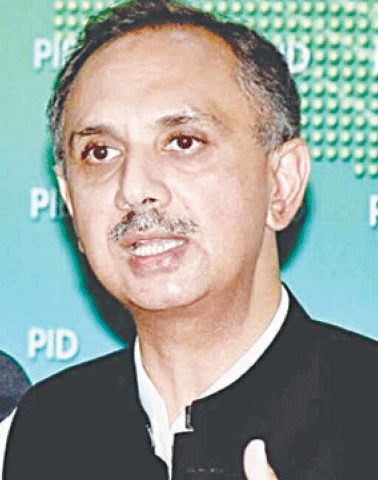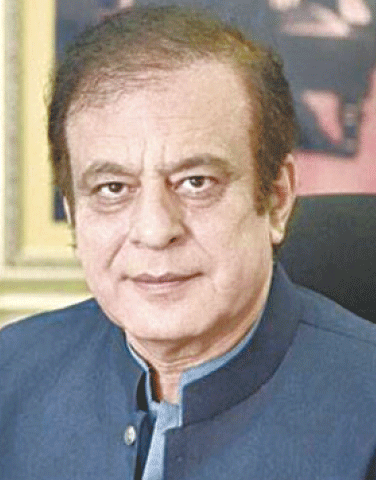• PTI announces intention not to field new names, fight the decision in courts after both houses declare opposition leader slots ‘vacant’
• Observers say others may take advantage if largest opposition party chooses to ‘sit out’ race for coveted offices

THE announcement by the custodians of both houses of the parliament — declaring the offices of opposition leaders vacant — and the PTI’s apparent decision to not nominate any other party member for the two coveted parliamentary posts, could lead to another political crisis.
Political observers believe that it will be another “strategic and political mistake” by the PTI if it doesn’t nominate new opposition leaders in the Senate and the National Assembly, even if on a temporary basis.
They believe that a failure to fill these posts will not only provide the government an opportunity to establish a complete hold over parliament, but would also allow them carte blanche when it comes to appointments to key constitutional offices.
Hours after an official announcement from the Senate Secretariat declared the seat of Opposition Leader Shibli Faraz “vacant”, and a similar pronouncement regarding the disqualification of Omar Ayub Khan from the National Assembly, the PTI declared it would not nominate new opposition leaders and would challenge the decision in a court of law.
Following the move, Omar Ayub Khan told Dawn he would file a contempt application, as declaring his seat vacant was a clear violation of a recent Peshawar High Court (PHC) order, which had restrained the ECP from proceeding with his disqualification.
“They cannot invite names for the leaders of the opposition in both houses because the PHC has clearly ordered that such a step cannot be taken. Moreover, other opposition parties do not have [the] strength to get an opposition leader elected. As the PTI is the largest opposition party in both houses, it cannot be deprived of [the right to have its] opposition leaders,” he explained.
Similarly, former NA speaker Asad Qaiser termed the development “disappointing”, saying that it betrayed haste on the government’s part.
“Currently, there is a sham democracy in the country… the government can do anything,” Mr Qaiser said sarcastically when asked what the party would do if the speaker nominated someone from, say, the JUI-F – the second largest opposition party in both houses.
According to Ahmed Bilal Mehboob, who heads the Pakistan Institute for Legislative Development and Transparency (Pildat), there is no timeframe specified for the election of the opposition leader, but the assembly rules suggested that he/she should be nominated as soon as possible, as they are assigned certain key constitutional functions, including consultation over the names of the next chief election commissioner, and members of the ECP.

“A vacancy in the office will impair parliamentary work as the leader of opposition has to represent the opposition in the Business Advisory Committee, which decides daily priorities and schedule of parliamentary business,” he said.
“A lack of the opposition representation in this important committee will negatively impact the quality of parliamentary proceedings,” Mr Mehboob noted.
According to the rules, the speaker is supposed to fix a date by which members of the opposition have to submit the name of the leader of the opposition along with their signatures.
The speaker, after verifying the signatures, will declare the member who has the greatest numerical strength as opposition leader, he said.
“Irrespective of the validity of the conviction and disqualification of the leaders of opposition, their offices should be filled as soon as possible,” he said.
The PTI, he said, should join this exercise, because even “if it doesn’t join, the remaining opposition members will submit the name and someone will be appointed as opposition leader.”
He said the PTI should not forget how the government had previously managed to appoint a friendly opposition leader Raja Riaz.
Talking to Dawn, Mudassar Rizvi of the Free and Fair Election Network (Fafen) recalled that during the 2014 sit-in outside parliament, PTI MNAs had resigned en masse — a decision that put them at a disadvantage.
Even after the disqualification of its legislators, the PTI was still the largest party in both houses, he said, and should therefore keep the opposition leader offices to maintain its strength.
Anything else would be a “political blunder”, and some other party could get its hand on all the important positions, despite having less representation than the PTI.
Senior journalist MB Soomro, who has been covering parliamentary proceedings for over two decades, also termed the present situation “alarming”, and pointed out that the country’s largest legislature, the Punjab Assembly, was also without an opposition leader after the disqualification of Malik Ahmad Khan Bhachar.
He recalled how Maulana Fazlur Rehman was nominated opposition leader in the NA during the Musharraf regime, even though the combined strength of the PPP and PML-N — who were part of the Alliance for Restoration of Democracy at the time — was greater than the Muttahida Majlis-i-Amal alliance.
At the time, he said, the speaker had used his discretionary power to nominate the opposition leader.
Since then, however, the rules have changed, and if such a situation arises again, it would be an “unethical move”, even if it is constitutionally valid.
Given the party position in the assemblies, Mr Soomro said the PTI could easily retain these offices in both houses of the parliament, provided it joined the race. The JUI-F only has 10 MNAs and seven senators, so there seems to be no justification to hand the party these key offices in the present scenario.
In his view, the PTI should put forward nominations for these offices. If the grapevine is to be believed, he said, the name of PkMAP chief Mehmood Khan Achakzai was already being whispered as a potential replacement for Omar Ayub in the National Assembly.
Published in Dawn, August 9th, 2025

